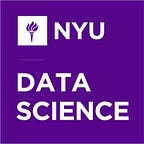Meet the Fellow: Cory McCartan
This entree is a part of our Meet the Fellow blog series, which introduces and highlights Faculty Fellows who have recently joined CDS
Meet Cory McCartan, who joined CDS as a faculty fellow and Data Science Assistant Professor this July. In 2024, Cory will join the Department of Statistics at Pennsylvania State University as an Assistant Professor. “I’m really glad to be starting at CDS,” said Cory. “CDS has so many great researchers from all different disciplines, and I look forward to learning from them as I work on building new tools in computational social science.”
In his current work, Cory applies data science methodologies to social problems, focusing on Bayesian and computational methods along with geographic data. His research largely centers on developing and applying algorithmic tools to legislative redistricting.
A graduate of Grinnell College with a BA in Mathematics, Cory received his AM and PhD degrees in Statistics from Harvard University, advised by Kosuke Imai. Before graduate school, he was a Data Science for Social Good Fellow with the University of Washington eScience Institute.
Cory helped start the Algorithm-Assisted Redistricting Methodology (ALARM) Project at Harvard in 2021, which conducts research on redistricting sampling algorithms and develops tools for analyzing redistricting plans. He has since developed multiple open-source R packages for redistricting, statistical analysis, and visualization. In 2022, Cory was awarded the Best Statistical Software Award by the Society for Political Methodology.
His recent work on “Sequential Monte Carlo for Sampling Balanced and Compact Redistricting Plans” (Forthcoming by the Annals of Applied Statistics, 2023) was covered in “Can computer simulations help fix democracy?” (The Washington Post) along with “How Math Has Changed the Shape of Gerrymandering” (Quanta Magazine).
Other research publications have included, “Widespread Partisan Gerrymandering Mostly Cancels Nationally, but Reduces Electoral Competition” (Proceedings of the National Academy of Sciences, 2023), “Researchers Need Better Access to U.S. Census Data” (Science, 2023), and “Recalibration of Predicted Probabilities Using the “Logit Shift”: Why Does it Work, and When Can it Be Expected to Work Well?” (Political Analysis, 2023).
To view all our current faculty fellows, please visit the CDS Faculty Fellow page on our website.
By Meryl Phair
